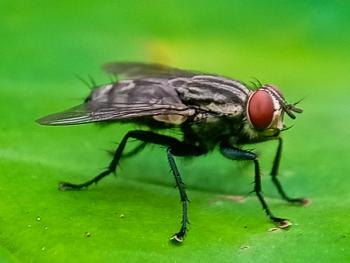
CAPC predicts ticks to be a menace in 2015
Lyme disease, ehrlichiosis and other tick-borne diseases continue to spread; year-round parasite control urged for pets.
Many tick species like to hang out in areas with long grass and quest for their next blood meal.The Companion Animal Parasite Council (CAPC), a group that focuses on parasite research and education for veterinarians and pet owners, has released its
The annual CAPC parasite forecasts are based on a model similar to the one meteorologists use to predict U.S. hurricanes. This model predicts activity based on factors such as temperature, precipitation and population density.
Dr. Susan Little“One common pet owner misperception is that parasites are only active during warm weather,” says CAPC President Susan Little, DVM, PhD, a parasitologist at Oklahoma State University, in a CAPC release. “But different tick species are active at different times of the year, including in the cooler months. For example, adult black-legged or deer ticks, which transmit the agent of Lyme disease and other infections, are actually most active during the fall and winter months. When this longer activity is considered together with the increased geographic distribution, parasites, particularly ticks, are a year-round concern.”
Because spring is traditionally thought of as the start of flea and tick season by pet owners, CAPC is encouraging veterinary practitioners to reach out to their clients now to discuss the importance of parasite control for their pets.
For 2015, CAPC predicts the following risk areas for parasite-related diseases:
> Lyme disease is a high threat again this year in the New England and Mid-Atlantic states and continues to spread westward with a higher-than-average risk forecast for the Upper Ohio Valley area and the Pacific Northwest.
> Ehrlichiosis, another potentially fatal disease of dogs most common in the South, also appears to be a threat as far north as New England, as well as in far-reaching areas such as California and the Southern Plains states.
> Anaplasmosis is poised to be highly active in the Great Lakes states, and New England could have an especially challenging year.
>Heartworm disease, a potentially fatal disease transmitted by mosquitoes, remains a consistent threat to the health of dogs and cats in the warmer Sunbelt states. The forecast also predicts a higher-than-normal threat of heartworm infection in Iowa, Minnesota and Wisconsin.
In addition to these forecasts, CAPC offers parasite prevalence data that localizes reported parasitic disease activity to the county level. In recently conducted research, CAPC found that pet owners want to know about parasite risks immediately. A 2014 study by CAPC and Bayer polled 2,000 pet owners and found that 90 percent want to be notified of a high incidence of parasites in their area; two-thirds want to know this information immediately from their veterinarian. In addition, 89 percent of pet owners said they were likely to make an appointment to get their pets tested based on the risk.
There are more than 175 million pet dogs and cats in the United States. However, only 60 percent of dogs are protected for parasite-transmitted diseases like Lyme borreliosis and heartworm disease, CAPC says. For cats, it's fewer than four in 10. In many cases, pets serve as sentinels for tick-borne disease in humans.
“It is imperative that practitioners and pet owners work together and take the necessary preventive measures that not only safeguard the health of dogs and cats, but also can protect the whole family,” Little says.
CAPC offers educational tools and information for both veterinarians and pet owners on its two websites:
Newsletter
From exam room tips to practice management insights, get trusted veterinary news delivered straight to your inbox—subscribe to dvm360.





